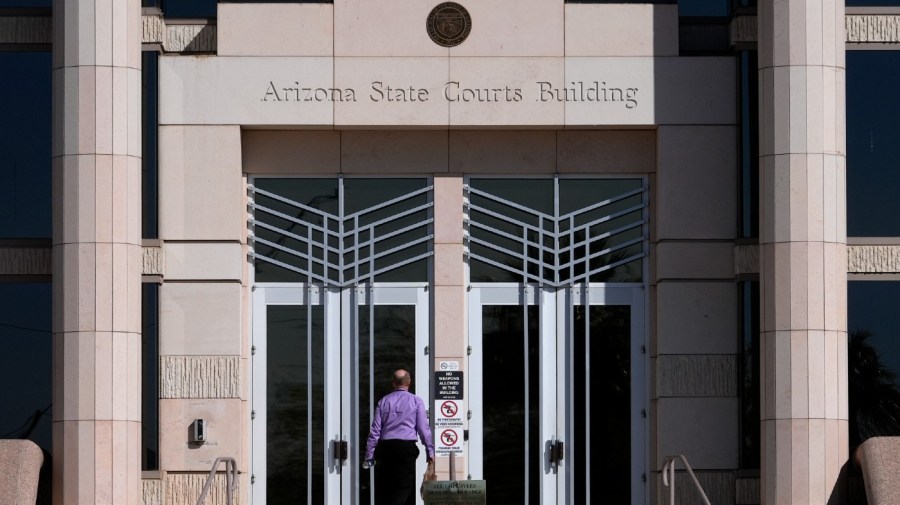The Arizona Supreme Court declined to extend the state’s deadline for voters to fix problems with their mail ballots after finding no evidence of disenfranchisement.
The American Civil Liberties Union’s (ACLU) Arizona arm and the Campaign Legal Center raised concerns that thousands of mail ballots won’t be processed until after Sunday’s 5 p.m. MST deadline, meaning some voters won’t know if their ballot has an issue until it is too late to cure it.
The state’s top court declined the groups’ emergency petition, which was filed Saturday, that sought to extend the statutory deadline. The petition asked the court to provide voters with four days to cure their ballot after being notified of a deficiency.
No county that responded asked for an extension, and each asserted they made reasonable efforts to notify voters with inconsistent signatures, the court noted.
“Thus, the Court is not presented with evidence that any voters will be prevented from curing a defective ballot by today’s 5:00 p.m. deadline. In short, there is no evidence of disenfranchisement before the Court,” the court’s order reads.
The ACLU filed its petition alongside the League of United Latin American Citizens. The Republican National Committee (RNC) filed court papers opposing the request.
“ACLU lost its hail mary last minute lawsuit to extend the cure period for mail ballots lacking signature matches. Ballot curing is now over in Arizona. Let’s finish the tabulation and wrap this up,” Harmeet Dhillon, who represented the RNC, wrote on X.
Arizona State Senate President Warren Petersen (R), who similarly filed a brief opposing the ACLU, wrote “Court ruled as predicted. ACLU lost. We won.”
“We encourage voters to check their ballot status. We will continue to advocate to make sure all votes are counted,” the ACLU of Arizona said in a statement.
Before mail ballots are tabulated in Arizona, each county recorder processes them to verify the voter’s signature. When issues are discovered, state law requires officials to make reasonable efforts to notify the voter and provide them an opportunity to cure their ballot.
But state law also provides that voters have until five days after the election to do so.
More than 67,000 early ballots had yet to be processed as of Sunday, according to estimates from the Arizona secretary of state’s office. The majority — 57,000 — are from Maricopa County, the state’s most populous area that includes Phoenix.
“All responding counties advise that all such affected voters have received at least one telephone call along with other messages by emails, text messages or mail,” the court wrote in its order.
Updated at 9:37 pm ET.

